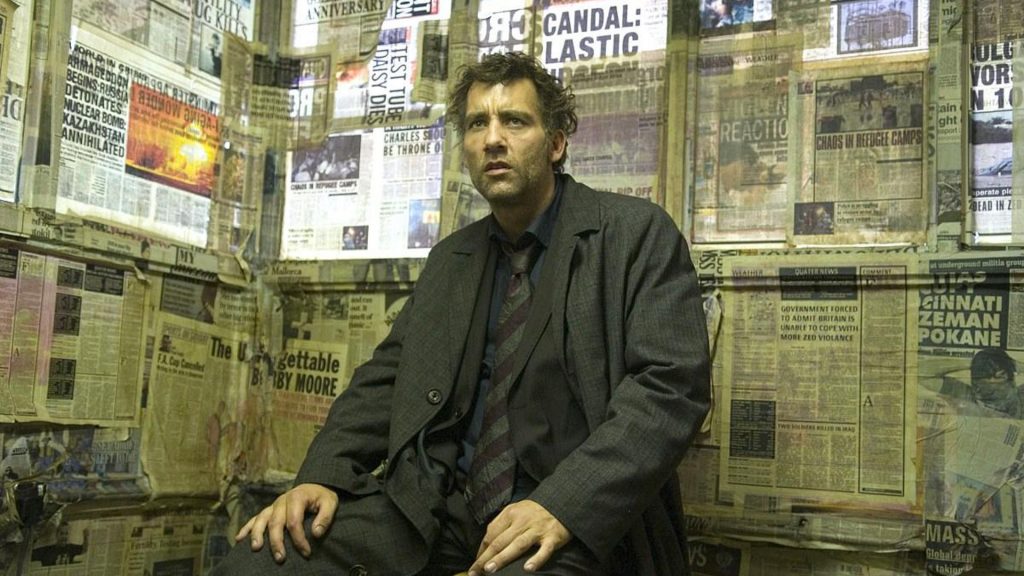Sunday links

John Wyver writes: another selection of stuff that has caught my attention over the past week, kicking off with four essential analyses of contemporary geo-politics – as usual, I am more than grateful to those on my Twitter timeline and elsewhere who, explicitly or not, offer suggestions for inclusion.
• Whose century?: for LRB, Adam Tooze reviews four recent books about, broadly, China and America, while spinning a breathtakingly broad overview of postwar global economics and security.
[PS. the latest LRB, from which Adam Tooze’s article comes, is a bulging suitcase of brilliant writing from, among others, Frances Stonor Saunders, William Davies, Randall Kennedy, Neal Ascherson and Linda Colley; £, of course, but worth every penny if you can afford it.]
• Pompeo’s surreal speech on China: Thomas Wright for The Atlantic brings bang up to date Adam Tooze’s.
• A ‘new start’ built on old lies: meanwhile looking to our our own backyard, here’s another recommendation for the latest from Chris Grey’s ‘The Brexit Blog’ – immaculate, anger-provoking political analysis of the highest order.
• The great climate migration: and then looking a little further out, although not much, this is an exceptional interactive by Abrahm Lustgarten for The New York Times Magazine, with photographs by Meridith Kohut.
• Senses of Cinema, Issue 95: just dropped, with a dazzling agenda of articles, kicking off with a substantial dossier on Stanley Kubrick’s The Shining (1980) at 40; individual selections to follow in the coming weeks.
• The socialist cinema of Ken Jacobs: an interview with Ken Jacobs: Max Bienstock speaks with the avant-garde filmmaker for LA Review of Books.
• Patrick Russell, the BFI, Public Information Films and the COI: at The Haunted Generation, a conversation between the BFI curator Patrick Russell and about the deep, disturbing weirdness of many Central Office of Information productions – witness this trailer for the new BFI Blu-ray collection:
• Why Children of Men haunts the present moment: Gavin Jacobson on the contemporary resonances of Alfonso Cuarón’s 2006 dystopian masterpiece (above, with Clive Owen), referencing Jameson, Fukuyama, Gramsci, Bazin, Sontag, Ross Douthat and the ever-more-prescient late Mark Fisher.
• The shock troops: Never Trumpers and right-wing agitprop: terrific from David Bordwell on the likes of The Lincoln Project: ‘What’s fascinating to me as a film researcher is how those efforts exploit the conventions of left-wing agitprop from the silent era onward.’ But don’t forget the politics…
So, yes, savor along with me powerful videos eviscerating Trump and his sycophants. Hope, as I do, that mockery and indignation and sheer fatigue will sway some of those voters who might admit that they were abysmally stupid in 2016. (Those of us who despise the Clintons still saw the difference between herpes and cancer.) And continue to work, however we can, to keep our society from spiraling into despair.
Just don’t treat the Never Trumpers as anything but what they are. They are our Hessians, our Blackwater special ops, our Shock Troops of Death. Eager to crawl to the front lines and slit throats at nightfall, to become relevant once more, they should be praised for coming to our aid. But when we really needed their particular skills was in the decades leading up to our current catastrophe. Then they failed us.
• News and the storytelling brain: more exemplary writing from Luke McKernan about coffee, cognitive science, narratives and news; good links too for further reading.
• Blackpool Grand Theatre and The RSC | Once More Unto The Breach (Beach) from Henry V: so, so good in so, so many ways… (do also read the background here).
• The online movement to #FreeBritney: the strange tale of the messy life of a mega-star, reflected on by Naomi Fry for The New Yorker:
Regardless of the specifics of the legal situation, however, the #FreeBritney supporters seem to be reacting to a broader sense in which mega-celebrities like Spears become, in effect, prisoners of their own success and those who stand to gain from it, such as the people who manage the stars, and the corporations that depend on them for revenue.
• When video art meets the music video: for Apollo, Cassie da Costa on Black artists working with cutting-edge musicians, including Khalik Allah’s collaborations with Masta Killa, and the collaborations of London-based musician, artist and producer Klein, including ‘Cry Theme’…
• Restored as mosque, Hagia Sophia opens up to Islamic prayers: a fascinating, beautifully presented Wall Street Journal article by David Gauthier-Villars which includes a richly informative interactive timeline [£, but link should work if subscription invite that comes up first is dismissed].
• The mystery of the Timurid Qur’an: really good on the most expensive Qur’an manuscript ever, sold by Christie’s in June, by Stephennie Mulder and Yael Rice for Prospect.
• Occidental tourists: for Artforum, Nasser Rabbat on the British Museum’s show ‘Inspired by the East’. [£]
• The Japanese-American sculptor who, despite persecution, made her mark: Thessaly la Force profiles the late Ruth Asawa for The New York Times Magazine – a long, engrossing read.
• Clear, inclusive and lasting: wonderful writing by Mark Mazower for New York Review of Books on history, historians and Hobsbawm, E.
• Follows an important thread about colourising ‘old’ photographs…
• Before Zoom and Coronavirus, how the telephone became the 20th century’s most successful remote-learning technology for homebound students: lovely light media archaeology from Harry McKracken at T74.
• About Automating Vision: resource links compiled by Anthony McCosker linked to his new book (with Rowan Wilken) explorinng, as they say, ‘some of the key sites of innovation in machine vision – facial recognition, mobile augmented reality and mapping, drone vision, driverless cars, deepfakes.’
• And finally, this is – well – wondrous: Shirley Collins, ‘Wondrous Love’, from her collection releaased this week, Heart’s Ease – see also, from the Guardian, ‘Our collective imagination could die away’: Stewart Lee and Shirley Collins in conversation…
Leave a Reply